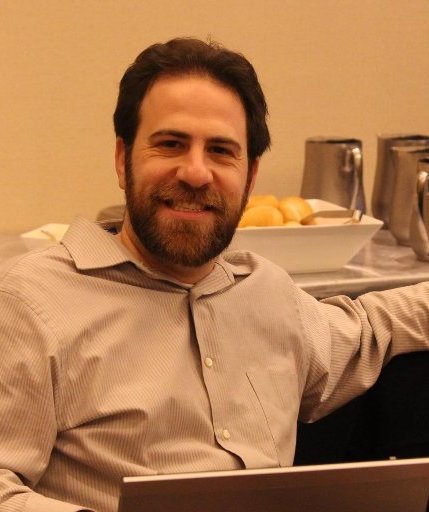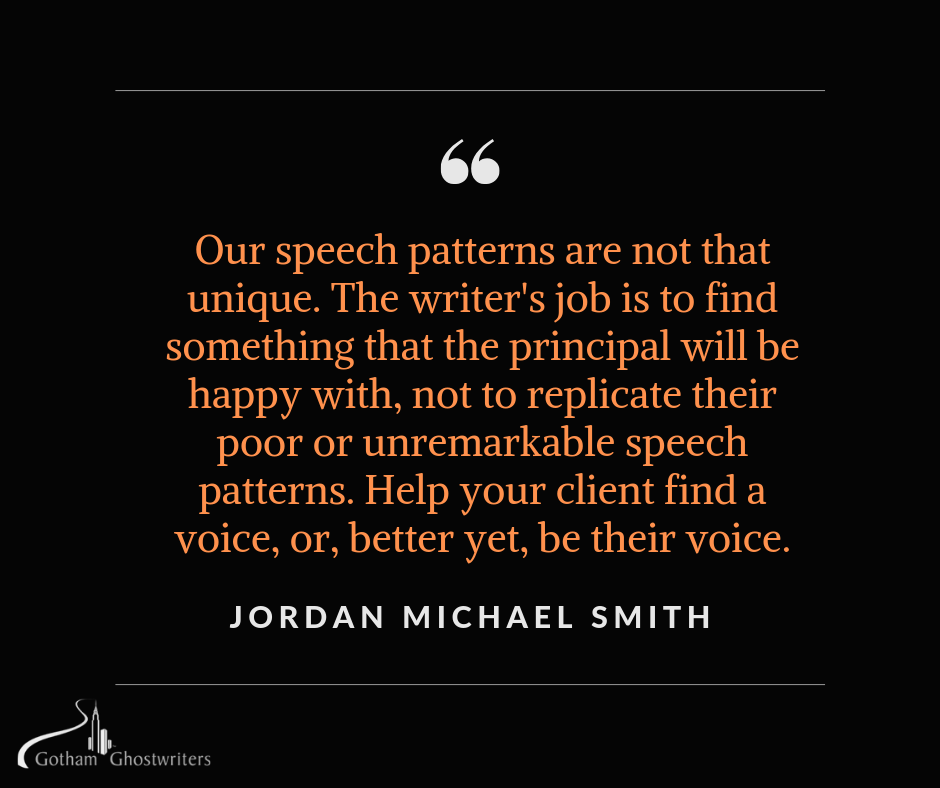
Jordan Michael Smith is a former speechwriter for New York City Mayor Bill de Blasio and Comptroller Scott Stringer. He is the author of a bestselling Kindle Single about President Jimmy Carter called Humanity. His writing has appeared in the New York Times Magazine, The Atlantic, the Washington Post, and many other publications. Follow him on Twitter @JordanMSmith_, and visit his website at jordanmichaelsmith.com.
Tell us what you can about your writing career. How did you get into that practice? When did you know you could make a career out of it?
When I was 13, I asked a girl out. She said she wasn’t sure, so I began writing awful poetry. And I discovered that I liked it, and ever since I have known I wanted to be a writer (still waiting to hear back from the girl, though). There were doubts about whether I could make it happen, but never about whether I wanted it. That type of clarity and passion is deeply helpful for anyone pursuing a career in any field, I think. It forces you to think about what you’re willing to sacrifice for your dreams, and where you’re willing to compromise. I was willing to do anything to be a writer, even if meant moving countries, being poor, and writing every single day. But at the same time I would take any job that would help me advance my writing career, even if meant doing something I didn’t enjoy or disliked, such as PR or whatever.
I studied political science, wrote for the school papers, and interned at newspapers in Ottawa (I’m Canadian), where I went to grad school. After that, I moved to Calgary to write for a magazine that shut down within a year. I moved back home to Toronto at 27 and emailed about 30 journalists I liked asking them how I could pursue a writing career. Nearly all of them said to just get clips, so that’s what I focused on. I took an internship at The American Prospect and moved to Washington, D.C. For the next five years, I worked in communications: press releases, pitching, etc. I hated it, but it paid the bills while I freelanced at nights and on weekends. Speechwriting came on my radar and that seemed like a good way to combine my interests. I volunteered at a nonprofit that needed some speech-writing, and then I got a speechwriting job at a trade association. In 2015, I moved to NYC and got into speechwriting for government. Finally, in January of this year, I was able to go freelance full-time, ghostwriting a book, writing speeches and magazine pieces.
Since 2005, I’ve never stopped writing freelance journalism. Weekends, evenings, vacations, down time at my other jobs — I always wrote. Sometimes for free, if it was the right opportunity. I wrote an e-book over the course of a year while I worked a full-time job by spending every moment I wasn’t at work devoted to it. I cannot overstate how much rejection I’ve gotten. One editor told me: ‘your writing makes me sick.’ And that was an editor who published me! I’ve gotten so many pitches rejected, pieces killed, leads that led nowhere, etc. But if you let that get in your way, you won’t make it. Well, some people are successful right away — Caitlin Flanagan, for example, hadn’t written much when her friend, an editor at The Atlantic, asked her to write something for him. But that’s rare. For most writers, it’s always a hustle, a journey. The upside is that this quest lasts a lifetime — I’ll be working on becoming a better writer and advancing my career until I die. But you have to be willing to live with insecurity, unknowns, rejection, setbacks and at least temporary poverty.
What special considerations are required for different mediums? For example, how does your process for writing a speech differ from an article? Have you found writing books to be more challenging?
When I’m writing for myself, I say what I want, subject only to the editor’s approval. But when you’re ghostwriting, you’re in the service business. Some people have difficulty with that — they confuse speechwriting or ghostwriting with creating their own work. Dean Acheson, Harry Truman’s Secretary of State, once said that their uniquely close relationship depended on him, Acheson, remembering who was president. When I’m writing for someone else, I remember who the principal is. They, not me, are the ones delivering the speech or having their bylines on the article. So their opinion on the writing, not mine, is what matters. Some clients want basically to dictate their thoughts to you, and your job is to make it a little more organized or pretty. But other people want you to come up with something from scratch and then won’t even look at it before, say, delivering the speech in public. I adapt to either situation.

How has the political writing landscape changed in recent years?
Twitter has changed things. There are political writers who are extremely popular and prolific largely on Twitter only. That can be a good thing — writers who otherwise might have gone unheard or under-heard can find audiences by bypassing traditional gatekeepers. But clients, publishers and editors now sometimes measure writers by the size of their social media audience. That’s unfortunate — people like John Judis and Michelle Cottle are terrific writers but lack large social media followings. That’s true with people who write on subjects other than politics, too. Rachel Monroe is one of the best true crime journalists in America, but her Twitter following is much less than other people who are nowhere near her talent levels. I’m not good at Twitter and don’t enjoy it. But even if I was a good Twitter writer, it seems like a lot of work for very little payoff, so I haven’t devoted much time to it. I know I pay a price for that, however.
Do you have any quick tips for working with editors, especially pitching articles successfully?
Tailor your pitch to the publication you’re aiming for. Don’t send a pitch about dinosaurs to Bloomberg BusinessWeek, for example. Or a pitch about politics to Spotts Illustrated. Keep your pitch to 4 paragraphs or less. Include links to your clips. The hardest part for me was learning this: Don’t just have topics — have stories. ‘Road rage is a problem’ is a topic. ‘A guy was so angry about being cut off in his car that he deliberately drove off a cliff’ is a story. The more specific you are in your pitch — about what you want to say, how you’ll say it, etc. — the more successful you’ll be. Also: ask for feedback when you’re rejected. I take feedback very seriously, because it’s a great opportunity to learn and improve. And I have much to learn and I need a lot of improvement.
How do you develop a good “hook” when writing on behalf of clients? What questions do you ask to tease out the core message and understand their voice?
Here’s a dirty secret: Most people don’t have a ‘voice.’ JFK had a voice. Obama has a voice. Your average politician or CEO doesn’t have a unique voice, even if they think otherwise. Most of us frequently say things like, ‘ummm,’ ‘you know,’ ‘right,’ and other phrases that are awful. Even if we don’t, our speech patterns are not that unique. The writer’s job is to find something that the principal will be happy with, not to replicate their poor or unremarkable speech patterns. Help your client find a voice, or, better yet, be their voice. But most ghostwriters and speechwriters aren’t transcribing their boss’s words.
What does your writing routine look like? How do you stay productive and overcome blocks?
I learned in college that I’m not much of a fiction writer, unfortunately. That seems like a superpower to me. But with nonfiction, I don’t get writing blocks, I’m happy to say. I never lack for things for say on the page. My biggest productivity challenge is to avoid watching YouTube or reading Twitter. If I can stay away from the internet besides what I’m doing for work, I’m able to be very productive.
What’s the most challenging part of managing a freelance writing business?
Anyone who says anything but ‘finances’ is either lying or a member of some royal family.
If you could go back and change anything about your writing career, is there anything you would choose to do differently?
There is so much I would change. I was extremely arrogant at the outset, thinking that I had so much obvious talent that the world would notice my brilliance. Um, no. I would have been better at my full-time jobs instead of focusing on my writing all the time — that wasn’t fair to my employers, and I’ll always regret it. I would have worried less about getting in the prestige outlets than about doing lasting work. And I would left editors alone instead of being overzealous in asking them to respond to my pitches or published my pieces.
What’s your best piece of advice for someone looking to be a full-time writer?
If there is any other career besides writing that you could see yourself enjoying, do that. A writing career will mean insecurity, constant challenges, financial worries, etc. And it might not work out, no matter how talented you are, because luck plays a role. But if you would sooner claw your eyes out then abandon writing, then I would advise you to write any minute you can, and to read even more. Have some money coming in through a side gig, such as P.R. or bartending or whatever. That will alleviate some of the financial pressure so you can focus on writing in your spare time. Be kind to everyone, even unreasonable editors or clients.
What are you working on next?
I just submitted a proposal for a book I’m ghostwriting, and I’m the confident the book will be picked up by a publisher so I’m halfway through writing the complete book already. Also, I’m working on three magazine pieces and I begin a short-term consulting job at the United Nations at the end of this month. Next year I hope to write a book of my own, either about Canada or about Tolstoy.
Pitch your idea to us below, and we’ll match you with a writer like Jordan who can help you bring your vision to life.
